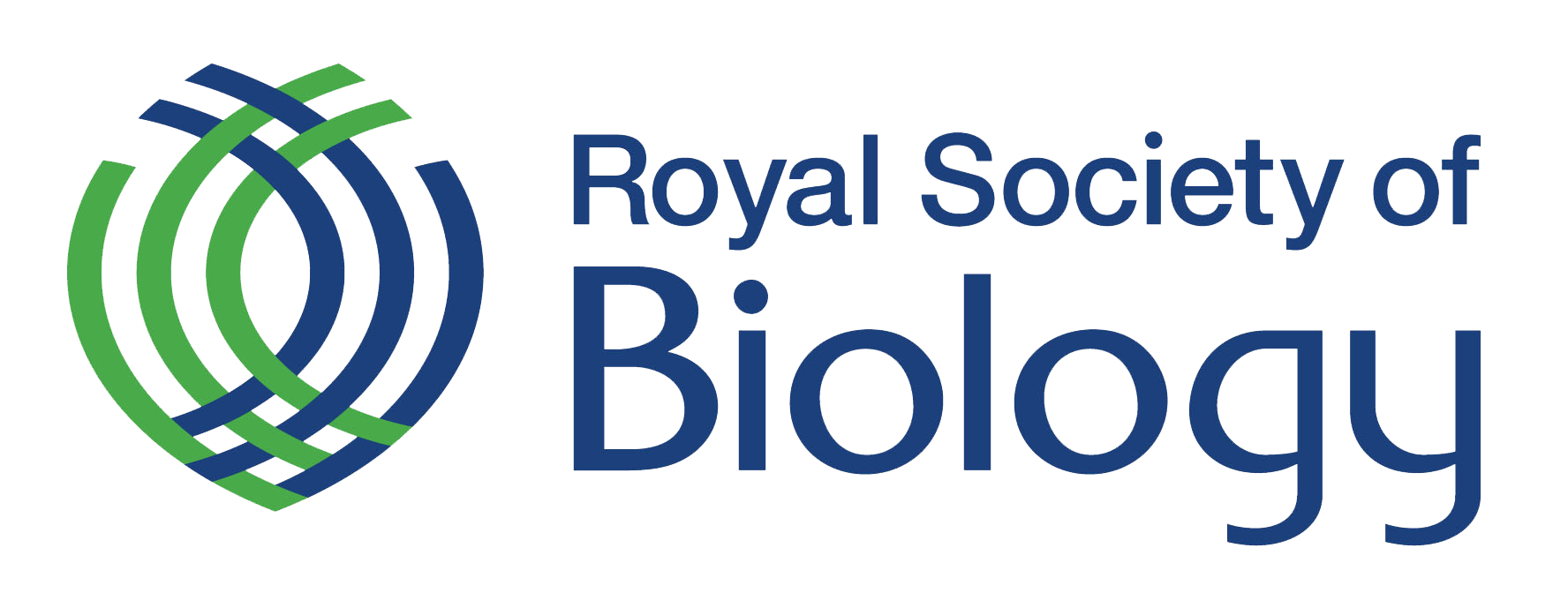


STEM
FOR BRITAIN
Exhibition of Posters by early-career research scientists, engineers and mathematicians.
2025
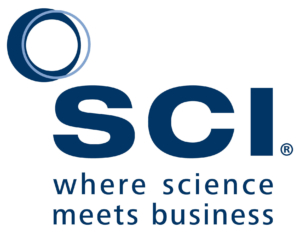
SCI | Society of Chemical Industry
Established by Royal Charter in 1881, SCI is a unique multi-science and multi-disciplinary community.
Formed in 1881 by prominent scientists, inventors and entrepreneurs, SCI focuses on the promotion of science into industry for the benefit of society and supporting the commercialisation of science via new products and processes.
We deliver our charitable objective in the following ways:
Tackling global challenges across Agri-food, Energy, Environment, Health and Wellbeing, and Materials
Working through 30 Technical, Regional, International, and Special Interest Groups to investigate and look at opportunities to tackle global challenges and identify possible solutions.
Fostering Innovation through networking and education
SCI brings together a community of industrialists, academics and early career researchers via 250 technical conferences, webinars and informational events.
Supporting the commercial application of science into industry
Through our magazine Chemistry and Industry (C&I) and through our seven peer reviewed research journals.
Early Career Support: Bright SCIdea Challenge
SCI’s Bright SCIdea Challenge is an annual entrepreneurship competition which allows UK and ROI university students to develop and showcase their business skills. The Bright SCIdea challenge asks students to develop a plausible scientific concept that could be commercialised for the benefit of society. University teams receive free, accredited business planning training and are asked to submit a full business plan, detailing how their idea can be taken to market. Shortlisted teams are invited to pitch their idea to a panel of entrepreneurs and industrialists at the final to win a significant cash prize.
The competition provides fantastic opportunities for the competitors to grow their budding professional networks.
Early Career Support: The Westminster Medal SCI recognises the importance of supporting the future stars in Science, thus providing a range of support for early career scientists.
As well as offering career development and networking opportunities, training, mentoring and grants, SCI offers a range of recognition awards around many of the scientific areas in which we work. SCI supports the Westminster Medal in honour of former SCI London Group chair and founder of SET for BRITAIN (now STEM for BRITAIN), Dr Eric Wharton. The Medal is awarded each year to the early career scientist presenting the best poster at the event.


Heilbronn Institute for Mathematical Research (HIMR)
The Heilbronn Institute for Mathematical Research (HIMR) is a major national centre for mathematical research, covering a broad range of areas in mathematics. Founded as a partnership with Government Communications Headquarters (GCHQ), the University of Bristol has been HIMR’S principal academic partner since its creation in 2005. Over the years it has attracted more than 200 mathematicians as members, including more than 90 research fellows from across some 25 UK universities.
The Heilbronn Institute’s activities include a two-day annual conference, attracting international mathematicians of the highest distinction, as well as a highly successful programme of events associated with its external research activities. The Institute also supports other high-profile mathematical meetings around the UK, including conferences, focused research groups and workshops. Past and present contributors to the Institute’s work have included many highly distinguished mathematicians, including 10 Fellows of the Royal Society.
The Heilbronn Institute has facilities in Bristol, London and Manchester, and research areas of interest include Algebra, Algebraic Geometry, Combinatorics, Computational Statistics, Data Science, Number Theory, Probability, and Quantum Information.
The Institute typically has over 45 members at any one time, including established researchers on secondment and over 30 Postdoctoral Research Fellows. Researchers at the Institute split their time between working on fundamental problems of interest to GCHQ and their own personal research.
The Heilbronn Institute is named after Hans Heilbronn, a German émigré and distinguished number theorist who became Bristol’s Henry Overton Wills Professor of Mathematics before his move to North America in 1964.
For further information on the Heilbronn Institute for Mathematical Research please visit our website www.heilbronn.ac.uk

Royal Academy of Engineering
Royal Academy of Engineering
The Royal Academy of Engineering was born in 1976 and since then, it has continued to champion excellence in all fields of engineering and honoured the UK’s most distinguished engineers along with those making an impact around the globe.
WHO WE ARE
We are a charity delivering public benefit, a National Academy providing progressive leadership, and a Fellowship bringing together an unrivalled community of leaders from every part of engineering and technology.
Our vision is engineering in the service of society.
Our charitable mission is to deliver public benefit through engineering excellence and technology innovation.
We have outstanding convening power nationally and internationally.
We understand how to make systems and innovations make a positive difference to society.
We are trusted for our independence and professional excellence.
OUR GOALS
Our overarching goal for 2025 is to harness the power of engineering to build a sustainable society and an inclusive economy that works for everyone.

UK Research and Innovation (UKRI)
What is UK Research and Innovation?
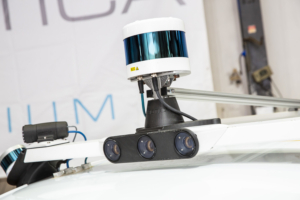 UK Research and Innovation (UKRI) is the national funding agency investing in science and research in the UK. UKRI brings together the seven Research Councils, Innovate UK and Research England to convene, catalyse and invest to build a thriving, inclusive research and innovation system.
UK Research and Innovation (UKRI) is the national funding agency investing in science and research in the UK. UKRI brings together the seven Research Councils, Innovate UK and Research England to convene, catalyse and invest to build a thriving, inclusive research and innovation system.
Our work connects discovery to prosperity and public good, tackling 21st century challenges from climate change and advancing technologies, to health, society, arts and culture.
The nine organisations brought together by UKRI bring a great depth and breadth of expertise, allowing us to connect research communities, institutions, businesses and wider society, in the UK and around the world. This combination enables us to work across the whole research and innovation system, informed by our networks and expertise.
Our vision is for an outstanding research and innovation system in the UK that gives everyone the opportunity to contribute and to benefit, enriching lives locally, nationally and internationally.
Supporting diverse career paths
 UKRI is committed to supporting talented and diverse individuals at all career stages, from funding for postgraduate research, to funding large research programmes and the research staff which work on them.
UKRI is committed to supporting talented and diverse individuals at all career stages, from funding for postgraduate research, to funding large research programmes and the research staff which work on them.
UKRI supports early career researchers in many ways including Future Leaders Fellowships which support talented people in universities, businesses, and other research and innovation environments. They also allow universities and businesses to develop their most talented early career researchers and innovators or to attract new people to their organisations, including from overseas.
The aim of the scheme is to develop the next wave of world-class research and innovation leaders in academia and business. It is also open to international applicants looking to take up a role at a UK-based organisation.
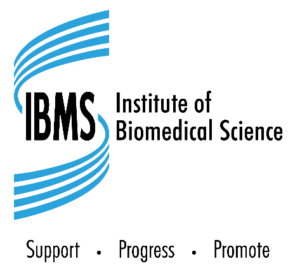
INSTITUTE OF BIOMEDICAL SCIENCE
Proud sponsor of STEM for Britain since 2012
Dedicated to excellence in biomedical science
The Institute of Biomedical Science (IBMS) is the leading professional body for scientists, support staff and students in the field of biomedical science representing over 20,000 members in 74 countries.
For over 100 years we have been dedicated to the promotion, development and delivery of excellence in biomedical science within all aspects of healthcare, and to providing the highest standards of service to patients and the public.
The science at the heart of healthcare
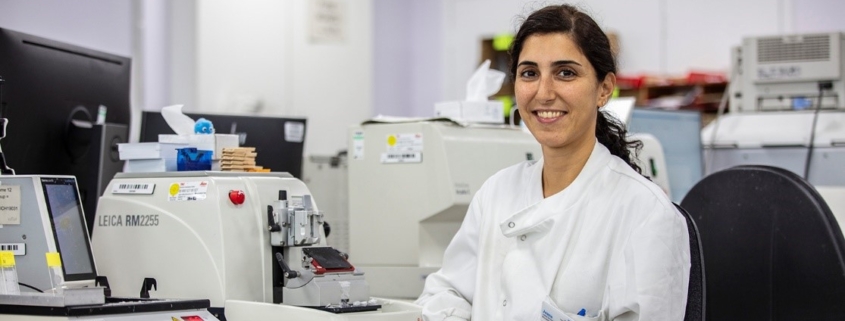
Biomedical science is practiced in healthcare laboratories to identify, research, monitor and treat diseases. As one of the broadest areas of modern science, it focuses on the complexity of the human body and underpins much of modern medicine.
Biomedical scientists and laboratory staff analyse fluids and tissue samples from patients, identifying diseases and providing reports that highlight the effectiveness of potential treatments.
In the UK alone, healthcare laboratories are involved in over 70% of diagnoses in the NHS and handle over 1.5 billion samples every year, not including Covid-19.
To protect public safety, biomedical scientists are legally required to be registered with the Health and Care Professions Council (HCPC) to practice in healthcare laboratories.
For further information visit www.ibms.org

ROYAL SOCIETY OF CHEMISTRY
Chemistry is at the centre of everything you can see, smell, touch and taste.
Whether studying the chemistry of life, or developing the advanced science behind modern technology, chemical scientists use their expertise to improve our health, our environment and our daily lives.
Collaboration is essential. We connect scientists with each other and society as a whole, so they can do their best work and make discoveries and innovation happen.
We publish new research. We develop, recognise and celebrate professional capabilities. We bring people together to spark new ideas and new partnerships. We support teachers to inspire future generations of scientists. And we speak up to influence the people making decisions that affect us all.
We are a catalyst for the chemistry that enriches our world.

THE BIOCHEMICAL SOCIETY
Founded in 1911, we’ve been at the forefront of advancing molecular bioscience for over 100 years, promoting its importance as a discipline, facilitating the sharing of knowledge and expertise, and supporting molecular bioscientists across all career stages. Our diverse programme of events, grants, publications, educational resources, policy work, and public engagement provides learning opportunities from across the full range of our disciplinary areas.
Supporting molecular bioscientists at every career stage
From the very start of their undergraduate studies and throughout their professional lives, we support molecular bioscientists’ career development and lifelong learning. Early career bioscientists represent a third of our membership and we help this cohort develop, expand, and diversify their experience through our tailored early career membership. Early career bioscientists develop skills through initiatives such as our Early Career Editorial Board Mentorship Scheme and early career-led journal issues, and their achievements are celebrated through our early career strand of our webinar series and Early Career Research Award. Driven by input from our Early Career Advisory Panel, we ensure the views, needs, and concerns of the early career community are mapped onto our existing and future activities.
Encouraging wider dialogue
Working with our members and the wider scientific community, we engage with key policy issues relating to the molecular biosciences. Fostering close working relationships across the STEM sector, collaborations with partners such as the Royal Society of Biology help to maximise the impact of our reach. Our Policy Advisory Panel guides our work in this area, developing and driving objectives, and members of our Policy Network contribute their views, helping us ensure the changing needs and concerns of the molecular bioscience community are well represented. Our commitment to open science and research practices, including transitioning our portfolio of journals to fully open access, supports collaboration and knowledge exchange by increasing the availability of research. Building engagement across the biosciences, within and beyond our community, we continue to foster diversity and equal opportunities, helping to create a more inclusive, accessible, and thriving scientific community for all.
Find out more at www.biochemistry.org

INSTITUTE OF PHYSICS
Proud sponsor of STEM for Britain
Our 21,000 members demonstrate their professional expertise in physics in settings ranging from schools, universities and national research facilities, to businesses of all sizes, and in roles as varied as teacher, researcher, apprentice, technician, engineer and product developer.
What is physics?
Physicists study how the universe behaves and apply that knowledge to improve our lives. They study everything from the smallest particles to the whole universe. As such, physics underpins chemistry, biology, engineering, and many other scientific disciplines.
The importance of physics
Understanding how the universe works gives us tremendous power to change our world.
Many of the biggest changes in our lives have been made possible by physics: mobile phones, the internet, medical imaging devices and electric cars.
Physicists can help us tackle the challenges our world faces, like dealing with climate change and feeding and caring for a growing global population.
More than 2.7 million people in the UK work in industries powered by physics. These include energy, healthcare, telecommunication, manufacturing, transport, aerospace and defence.
Our goal
The IOP works to ensure physics improves all our daily lives and our future.
What we do
- We work to break down barriers preventing people from under-represented groups becoming physicists.
- We bring physicists in the UK, Ireland and around the world together to share knowledge, support each other and build the teams which deliver breakthroughs.
- We share those breakthroughs and other research in a wide range of journals.
- We help turn scientific discoveries into real world applications.
- We make sure physicists have a voice in the big debates of our age, about education, science, innovation and wider policy.
- And we help physicists share the wonder and excitement they feel about their subject with the next generation of potential physicists, from all walks of life.
Find out more about our strategy, Unlocking the future.
Find out more about Limit Less, our campaign to support young people to change the world and fulfil their potential by doing physics.
THE NUTRITION SOCIETY
Proud sponsor of STEM for Britain
Highly regarded by the scientific community, the Society is one of the largest learned societies for nutrition in the world with a mission of advancing the study of nutrition and its application to the maintenance of human and animal health.
Given its culture of pushing boundaries, open access to the latest thinking, backed by a powerful network of expert collaborators, The Nutrition Society empowers you to reach your ambitions in nutritional science.
Nutrition Society membership offers unique opportunities to engage with nutritional science at every career stage.
All members can take advantage of:
- Discounted registration to attend conferences and member led events
- Discounted subscription to the Nutrition Society Academy – a unique subscription based learning platform
- Free access to a vibrant networking platform that allows offline discussion with other nutrition professionals
- 20% APC discountto publish in its fully open-access Journals
- 35% discount on Nutrition Society and other Wiley Blackwell Textbooks
- Subscription to our bi-annual members magazine The Gazette
- Exclusive access to financial grants and awards that recognize excellence within the field of nutrition.
THE ISAAC NEWTON INSTITUTE
Proud sponsor of STEM for Britain
“A world famous place for research in the mathematical sciences with a reputation for efficient management and a warm welcome for visitors”
The Isaac Newton Institute is a national and international visitor research institute. It runs research programmes on selected themes in mathematics and the mathematical sciences with applications over a wide range of science and technology. It attracts leading mathematical scientists from the UK and overseas to interact in research over an extended period.
INI has a vital national role, building on many strengths that already exist in UK universities, aiming to generate a new vitality through stimulating and nurturing research throughout the country.
During each scientific programme new collaborations are made and ideas and expertise are exchanged and catalysed through lectures, seminars and informal interaction, which the INI building has been designed specifically to encourage. It is a part of the University of Cambridge, and its main building is located on Cambridge’s Centre for Mathematical Sciences.
Find out more at: www.newton.ac.uk
The Newton Gateway to Mathematics is the impact initiative of INI and acts as a vehicle for knowledge exchange between the mathematical sciences and potential users of mathematics, including industry, government and other academic disciplines, both in the UK and internationally. It does this by making links and facilitating interactions and activities such as programmes of work, research and training events, as well as bespoke projects.
Find out more at: gateway.newton.ac.uk
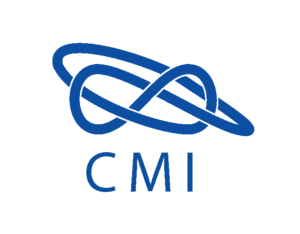
CLAY MATHEMATICS INSTITUTE
The Clay Mathematics Institute (CMI) is a privately funded philanthropic foundation, incorporated in the USA. It is dedicated to increasing and disseminating mathematical knowledge. The CMI supports the work of leading researchers throughout the world at various stages of their careers and organizes conferences, workshops, and summer schools. Contemporary breakthroughs are recognized by its annual Research Award. Its scientific activities are run from offices in the Mathematical Institute at the University of Oxford. Its primary objectives are:
- to increase and disseminate mathematical knowledge
- to educate mathematicians and other scientists about new discoveries in the field of mathematics
- to encourage gifted students to pursue mathematical careers
- to recognize extraordinary achievements and advances in mathematical research
The Institute was founded by the late Landon T Clay in 1998. Its establishment grew out of his belief in the value of mathematical knowledge and its centrality to human progress, culture, and intellectual life.
CMI is best known for the seven Millennium Prize Problems announced at the Collège de France in Paris in June of 2000. The prizes were established by CMI to (i) recognize some of the most difficult problems with which mathematicians were struggling at the turn of the millennium, (ii) to underline the importance of working on the really hard problems, and (iii) to spread the news that in mathematics hard, significant problems still abound – the frontiers of knowledge are still wide open.
The Millennium Prize Problems constitute but one of CMI’s activities. Two of the largest, in terms of both budget and importance, are the Clay Research Fellowships and the Clay Research Conference, the latter being the venue at which the Clay Research Awards are presented. The CMI also supports the PROMYS programme for high school students in the USA and PROMYS Europe for European students.
In its short history, the CMI has had a significant impact on the international mathematical community. The achievements of the 55 current and former Research Fellows are extraordinary, with many now leaders in their fields. Between them, they have won seven of the eighteen Fields Medals awarded since the fellowship programme began in 2000.

AWE
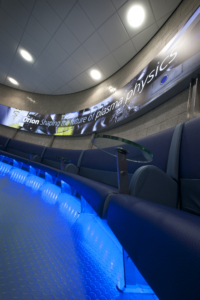
Inside AWE’s Orion laser building
For more than 70 years, AWE has supported the UK Government’s nuclear defence strategy and the Continuous At Sea Deterrent. We also use our nuclear know-how and technical expertise to provide innovative solutions that support the UK’s counter-terrorism and nuclear threat reduction activities.
What we do is unique and so are the people who work here. We have some of the best in the business and our people are truly our most valued asset. We work to attract, motivate, develop and retain the best talent and equip our people with the right skills for the future. We are a team of around 6,000 people – proud to be part of such an important mission and proud of our responsibilities to the Ministry of Defence.
We aim to build enduring relationships with our government customers, international partners, suppliers and communities in the locations where we operate.

THE COUNCIL FOR THE MATHEMATICAL SCIENCES
The Council for the Mathematical Sciences (CMS) was established in 2001 by the Institute of Mathematics and its Applications (IMA), the London Mathematical Society (LMS) and the Royal Statistical Society (RSS). The CMS comprises representatives and observers from the mathematical sciences community, including the Presidents and Chief Executives of these three societies.
The CMS provides an authoritative and objective body that exists to develop, influence and respond to UK policy issues that affect the mathematical sciences in higher education and research, and therefore the UK economy and society in general.
In October 2006, Professor David Wallace CBE FRS FREng was appointed as the first independent Chair of the CMS.
In 2008 the Edinburgh Mathematical Society and the Operational Research Society became Members of the CMS.
Professor Alison Etheridge OBE, FRS, FIMA was appointed as the new chair of the Council for the Mathematical Sciences in June 2021, succeeding Professor Sir Ian Diamond FBA, FRSE, FAcSS, National Statistician.




